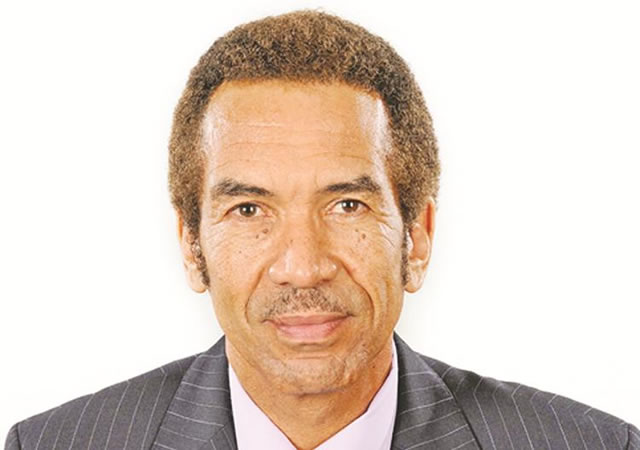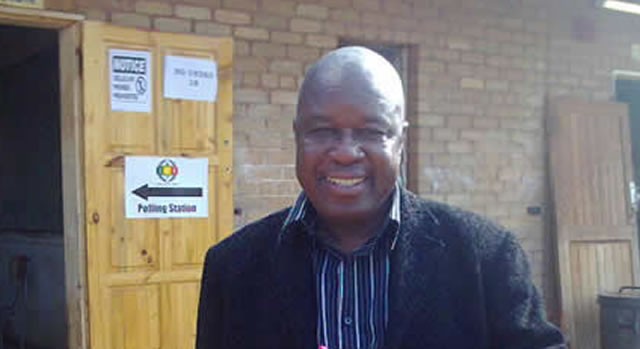Fish project to help improve food security for vulnerable families

 Tapfuma Machakaire
Tapfuma Machakaire
A dish that includes protein rich fish is not common for the ordinary Zimbabweans in the landlocked southern African state.
However, communities living on the shores of the mighty Zambezi river stretching from the Kariba dam in Mashonaland West province through Hwange and Binga districts up to Victoria Falls in Matabeleland North province are among the biggest consumers of fish mainly because of the easy access to fish and also due to the economic challenges that make it difficult for the rural folk to afford beef, the preferred relish for many.
A recently introduced programme, the integrated and sustainable fisheries and aquaculture production project, funded by the European Commission (EC) at a cost of over 3 million euros seeks to improve the food security and dietary diversity of vulnerable households.
The project has been introduced in Binga and Hwange in Matabeleland North Province, Insiza, Beitbridge and Umzingwane in Matabeleland South, Mwenezi in Masvingo and Kariba in Mashonaland West province.
Sibonginkosi Mugoni, the project coordinator, said the overall objective of the project was to “create an environment that enables vulnerable households to improve their food security through sustainable fish capture, aquaculture fish production, efficient processing, nutrition planning, improved policy inclusion and improved marketing.
She said the project would also create an environment that was conducive to reducing the dependency on humanitarian assistance and thus sustainably increase their resilience to shocks.
Mugoni says the project was in line with the Zimbabwe Agenda for Sustainable Socio-Economic Transformation (ZimAsset) Food Security and Nutrition Cluster whose thrust is to create a self-sufficient and food surplus economy and ultimately, to build a prosperous, diverse and competitive food security and nutrition sector that contributes significantly to national development through the provision of an enabling environment for sustainable economic empowerment and social transformation.
The cluster programmes are aligned to and informed by the Comprehensive African Agricultural Development Programme Draft Comprehensive Agriculture Policy Framework, the Food and Nutrition Security Policy and the Zimbabwe Agriculture Investment Plan.
Associates in the project whose implementation phase runs from November 2013 to October 2017 include University of Zimbabwe; the Parks and Wildlife Management Authority; Lake Harvest Aquaculture Ltd; Ministry of Agriculture Mechanisation and Irrigation Development, Zimbabwe Farmers’ Union, Environmental Management Agency and rural district councils.
To help promote the project, the implementers have partnered with a community based arts group ZIYA arts of the Sabhuku Vhara Zipi fame which was formed in 1993 and concentrates on what it calls theatre for development.
The group is based in the Shashe resettlement area of Mashava in Masvingo province and has produced a video drama that is meant to promote the projects and discourage fish poaching and environmental degradation.
Scene one of the performance was recorded in the Shashe river where fish poachers use mosquito nets to catch fish.
Apart from poaching fish in the river, the poachers are also destroying the environment and practising stream bank cultivation which leads to siltation of the river. The poachers are also risking their lives as the river is infested with crocodiles and hippos.
Wellington Chindara, ZIYA coordinator, said fish poaching was common in the Shashe River where a poacher was recently attacked by a hippopotamus.
The poacher sustained fractures on both legs and was recovering at a hospital in Harare. Another poacher had also recently survived a crocodile attack on the same river, said Chindara.
In the 15-minute drama, the poachers who are disappointed by the poor catch in the river, decided to go and poach from a fisheries project that had been established in the Topora area under the integrated and sustainable fisheries and aquaculture production project.
Douglas Mhondoro production chairperson of the Shashe resettlement said the communities feared that the poachers would soon turn to stocktheft and other crimes.
“Our worry is that if these poachers fail to get a good catch they will start killing our animals. We’re therefore glad that this project has been introduced in our area as it will give the poachers some alternative productive ways of making a living,” he said.
Established in June 2013, the Topora Fishery project with close to 100 members was one of the first projects to be established under the EC-funded projects in Masvingo with the local community providing labour in digging and securing the ponds.
In the drama, the poachers sneak into the fenced Topora project pond in the early hours of the morning.
But just as they had started fishing, they are spotted by a member of the Johane Masowe sect returning from an all-night prayer session who quickly rushes to alert the members of the project, resulting in the poachers being apprehended.
The matter is reported to the headman – Sabhuku Vhara Zipi – and a trial date is set.
The drama is spiced with music and dance to make it more captivating.
The headman relies on advice from the community on the nature of punishment to be meted to the offending members and eventually it is agreed that the poachers be incorporated into the project.
Soul Imbayago, an officer with one of the implementing organisations, said the approach of using a community drama group to promote community projects in the rural areas of Zimbabwe would have a greater impact as opposed to the formal meetings that project implementers normally hold in the rural areas.
“Here the communities are empowered to teach their colleagues on importance of these projects,” said Imbayago.
Mugoni said the video would be shown to communities in the district where the project was being introduced and the project would also be promoted on radio and television through advertisements and discussion programmes.











Comments